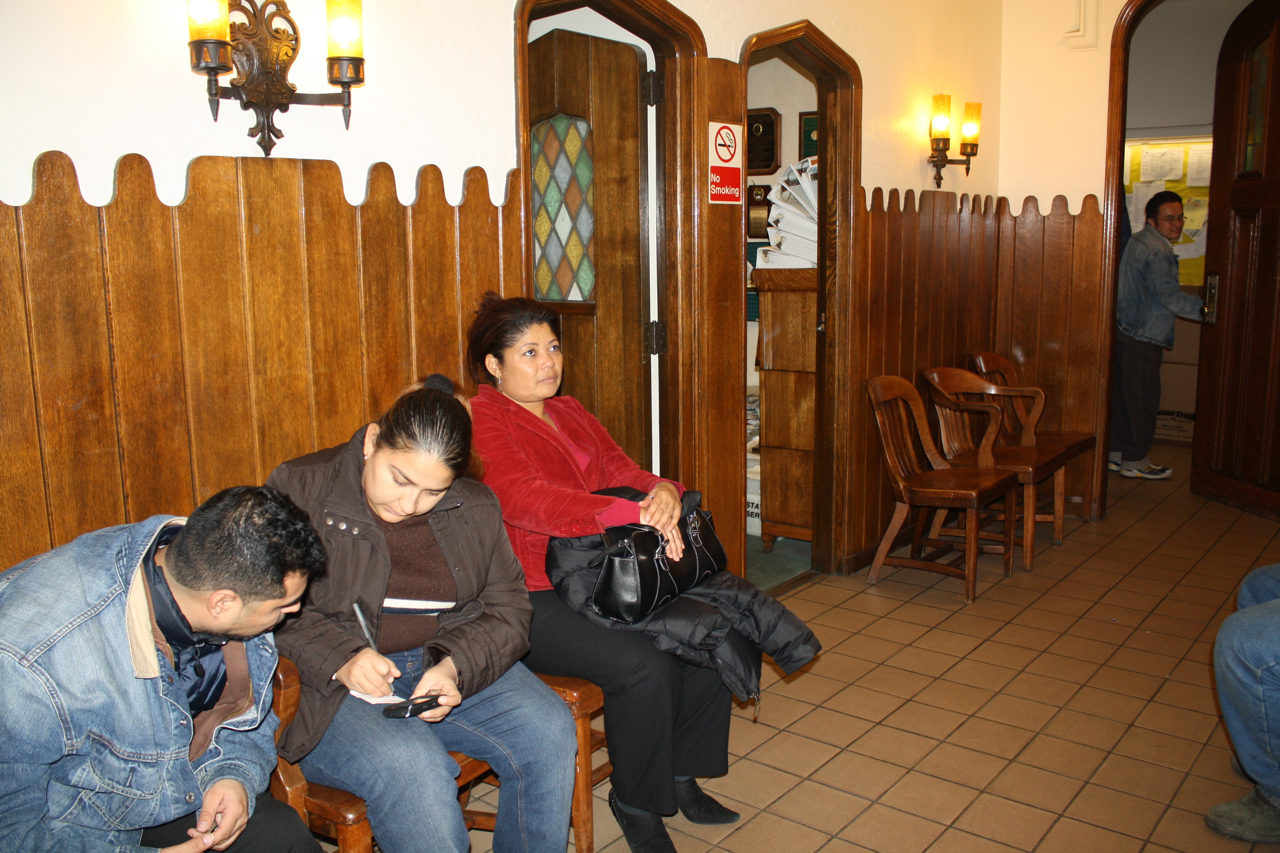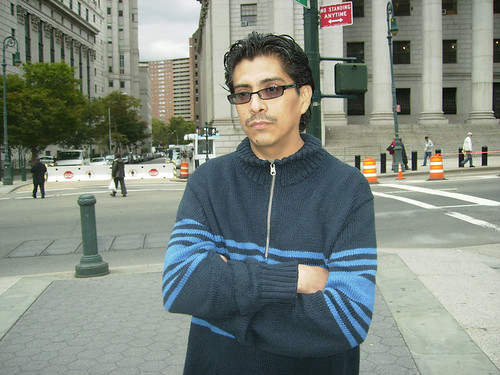By Aswini Anburajan, FI2W reporter
Immigrant business owners have breathed new life into the North Shore of Staten Island, New York’s least populated and least diverse borough.
Feet in 2 Worlds partnered with WNYC, New York public radio, to produce a profile of Victory Boulevard, one of Staten Island’s major thoroughfares, for the Main Street NYC series, which examines the recession’s impact on neighborhoods across the city.
You can listen to the story by pressing play below or visiting WNYC’s web site .
[audio:http://audio.wnyc.org/news/news20090511_main_st_staten_island.mp3]

The history of Victory Boulevard is like that of a lot of American Main Streets.
It was once part of a thriving downtown area until the development of suburbs drew the middle class community away from an urban center, and left areas like the northern end of Victory largely abandoned.
However, immigration to Staten Island over the past ten years has revitalized this part of the Island, which has stores that represent virtually every corner of the globe. While immigrants were once one out of ten residents in Staten Island in 1990, they are now one out of four residents. Ten percent of these immigrants own their own businesses, but the recent economic downturn has left many business owners struggling.

A&C Beauty Supply is a store that serves the Island’s African community, largely made up of Liberian and Senegalese immigrants.
Its owner, Adam, who is from Senegal, says that he noticed the downturn more than a year ago. Customers who were once avid purchasers of wigs and hair care products, now barely enter. On the day I stopped in, Adam had no customers in his store.

Kelvin Hanaf is the owner of Island Roti, a Carribbean takeout joint that serves food from his native Trinidad.
When I spoke with him he was at his wit’s end. “No one’s coming in,” he complained, saying that he would usually see weekend traffic start to pile into his store on a Thursday afternoon.
He joked that customers are cutting back so much that if they want to eat chicken roti they order a roti and cook their own chicken. Hanaf has cut prices by 50 cents on every item, and says that he just can’t afford to take the prices any lower.

Mosen Ibrahim also complains that penny pinching by the Island’s residents has taken a toll on his business. Moe’s Cafe, which he started five years ago, is one of the few places on Staten Island where you can find Mediterranean food and other dishes from Ibrahim’s native Egypt.
He was lured to Staten Island for the same reasons that many immigrants came — affordable home prices, the chance to start a business on the cheap and a small immigrant community from his native country. However, since the downturn Ibrahim has had to turn to his bank to stay afloat. They extended his mortgage, but he doesn’t mince words on what business is like right now. “Times are tough,” he said. “They’re tough for everybody but for the food business, when 80 percent of the people stop eating outside…” He trailed off with a laugh.

So who is doing well on Victory? Some of the haircutting salons like Against Da Grain Barber Shop report that even in a slow economy you still have to look good. This is one of the few stores on Victory that was crowded with customers the day I visited.
A hair braiding salon, named after its owner, Bissou, also reports that business is slowly picking back up. “A few months ago we were sitting here doing nothing,” Bissou, a Senegalese immigrant, told me, “So I can say that business is getting a little bit better.”

The one success story on Victory Boulevard, and perhaps for the future of immigrant-owned businesses on Staten Island, is Tulcingo Travel, a Mexican paquetería that facilitates the shipping of remittances and care packages between the United States and Mexico.
Immigrant entrepreneurs usually cater to their own communities, and in recent years the Mexican population on Staten Island has spiked, providing store owners who serve this community a buffer in these tough times. A Tulcingo worker told me that business had dropped off for about two months when the crisis first hit last fall, but things are back to normal now.
Could this bright spot on this struggling street mean that there is a silver lining to this crisis after all?














